Bakhtiar for resolving Karachi's water issue
Informs Senate panel that city's water supply, sewerage requires Rs300-350 billion for next five to seven years
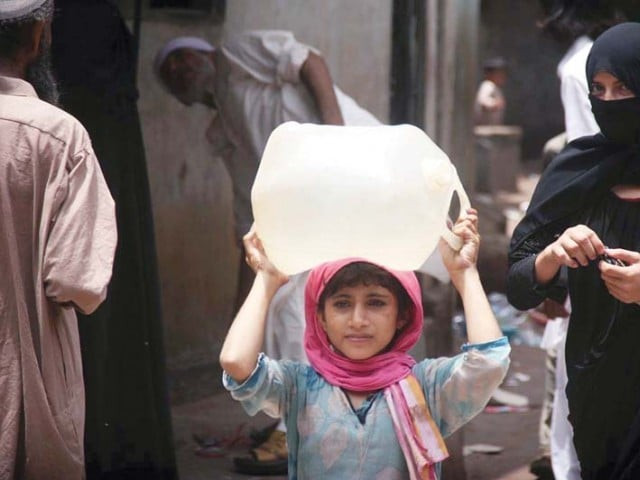
A little girl belonging to Lyari carries a water container on her head as shortage of water looms large in the face of the city. PHOTO: FILE
Briefing the Senate Standing Committee on Planning Development and Reforms on Friday, the minister said, "Fixing the city's water supply structure will be an example for the world."
He said as the Public Sector Development Programme was quite less, talks were being held with the World Bank and the Asian Development Bank for funding the K-IV project.
The standing committee meeting, chaired by Senator Agha Shahzeb Durrani was held at the Parliament House.
The planning minister said he had toured Karachi during the past week and examined the water shortage in the city.
He said, "Water demand in Karachi is 1,200 million gallons daily (MGD) while the supply is 500 MGD."
He said 100-year-old pipelines were in the system. "The National Engineering Services Pakistan (Nespak) has taken a time period of two months for K-IV. Nespak is studying the project and work on its allotment will start soon," said Bakhtiar.
The minister said the cost of the K-IV project that was Rs36 billion had gone up to Rs120 billion.
Bakhtiar said the Sindh chief minister had been told to review the K-I, II and III for increasing water supply, adding that the project management in Sindh was very weak and he did not want to indulge in the details.
He said development work based on constituencies was being carried out since 1985 which needed to be changed.
"The yellow line project has been approved," said Bakhtiar.
He said Nespak's technical committee report on K-IV would come soon.
"A power plant will also have to be included in K-IV and its cost will have to be borne. The cost can be met by selling water or else such projects cannot be maintained. We lack resources, but if long term loan is required for Karachi's infrastructure, it will be obtained," he added.
During the meeting, the committee members expressed anger over the matter of including 44 unapproved new schemes in the Public Sector Development Programme (PSDP).
The committee chairman questioned that how were new schemes added after the PSDP budget.
"The Planning Commission used to maintain that after the National Economic Council no new project would be included in the PSDP, but how were these projects added?" questioned the chairman.
"In the new development schemes in Balochistan, only two districts of the 38 have been awarded projects. It looks as if a particular party is being favoured in the new schemes."
The standing committee formed a sub-committee to look into the matter of adding 44 unapproved schemes into the PSDP. Senators Ahmed, Muhammad Shahi, Zubairi and Hidayatullah will be the members.
Further, Planning Secretary Zafar Hassan apprised the committee of a study being conducted on renewable energy.
He said, "Wherever potential is higher, renewable energy projects will be initiated there."
The Power Division officials informed the committee that Renewable Energy Policy 2019 was being devised.
They said after approval from the Alternate Energy Development Board (AEDP), the policy would be sent to the federal cabinet, upon which, Senator Rukhsana Zubairi raised an objection, saying there was no significant difference in the Renewable Energy Policy 2006 and that of 2019.
On solarisation of tube wells in Balochistan, the committee chairman said, "There is a dire need to move towards solarisation of tube wells in Balochistan."
Senator Mir Kabeer said, "The cost of shifting 32,000 tube wells to solar energy is Rs67 billion. The former government had approved shifting 10,000 tube wells to solar energy, but work for the purpose has not started so far."
The planning minister said Quetta Electric Supply Company (Qesco) is an institute suffering heavy loss. These tube wells had to be solarised, but could not."
He said that maybe all tube wells may not be shifted to solar. He called for summoning the joint committee of planning, finance and power division. He said that it remains to be seen if there would be cost sharing of solarization or if it will be a model. The standing committee directed that all recommendations of the business model of solarization to be presented in the committee.
The committee directed that the revised PC-I of the water supply project for Gwadar be sent to the Planning Commission within 10 days.

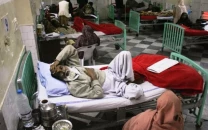
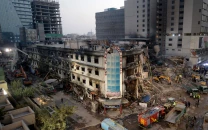
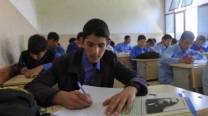
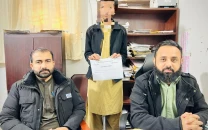














COMMENTS
Comments are moderated and generally will be posted if they are on-topic and not abusive.
For more information, please see our Comments FAQ